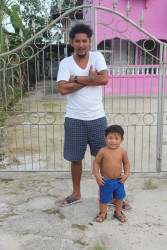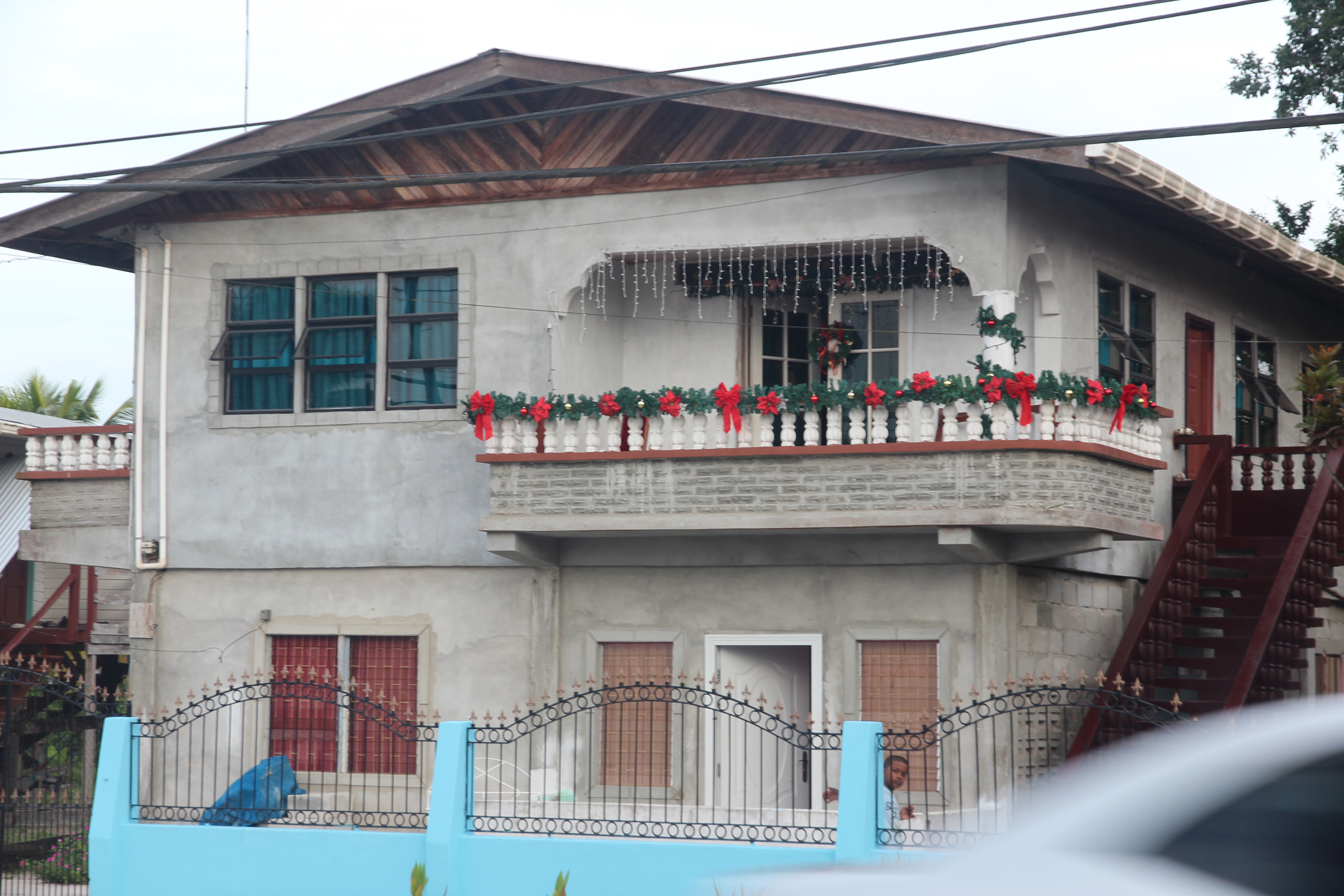Den Heuvel, on the East Bank Demerara, has a population of approximately 300 and is located just before Soesdyke. Its inhabitants; farmers, teachers, shopkeepers, housewives and persons working in the public and private sectors; refer to it as “Big Coverden,” while the village before it, Coverden, is referred to as “Little Coverden.”

When the World Beyond Georgetown visited just before Christmas, the village was filled with a cacophony of sound: loud music from a bar and noisy traffic. While the bar was filled with people, the shops seemed bare. Those who weren’t in bars were busy cleaning and decorating. The children, happy that school was out, rode around on bicycles.
The name Den Heuvel is of Dutch origin and translates roughly to mean ‘small hill’; it usually carries the prefix ‘van’. No one in the village seemed to know how or why it was given its name. When we arrived at the home of Den Heuvel’s oldest resident, 95-year-old Samrat Ragnauth, we discovered that she was next door at her son, Seeraj ‘Suresh’ Ragnauth’s residence since he was visiting from Canada for the holidays.
Samrat sat in the farthest corner of her son’s house, observing the cleaning. She revealed that she was born at Enmore Estate but grew up in Mahaicony Creek. When she was 15, she married Ragnauth Singh and together they had 14 children. Six of her children died during childbirth, and of the eight who survived, only six are alive today. Samrat said proudly that she made no “wasteful children.” They grew up to become soldier, police officer, pump attendant, teacher and tailor. Four of them live overseas but return to Den Heuvel every now and again to see her. She communicates with them via phone calls and Skype.
In 1962, she, her husband and their children moved to “Big Coverden,” now Den Heuvel, to rear cattle and to farm. They reared cows and planted rice, cassava, plantains and cucumbers. Today, at 95, Samrat still plants. Her little kitchen garden provides her with bananas, eddoes, cassava, sweet potatoes, okra, red beans and breadfruit.
Samrat enjoys worshipping, and the Coverden Temple exists today because of her eagerness to have a place to do so. Many years ago she and a few others collected funds to build it. The temple is the only place of

